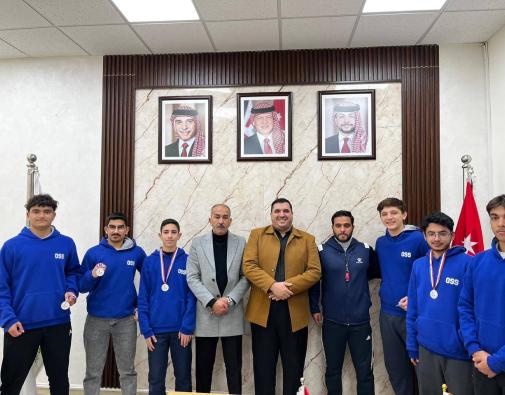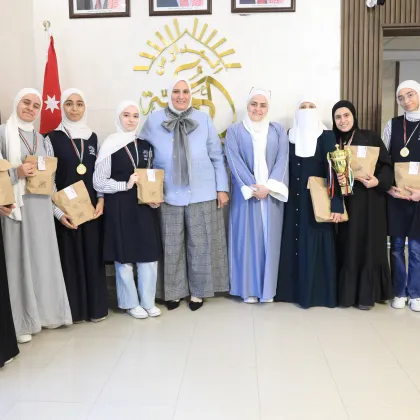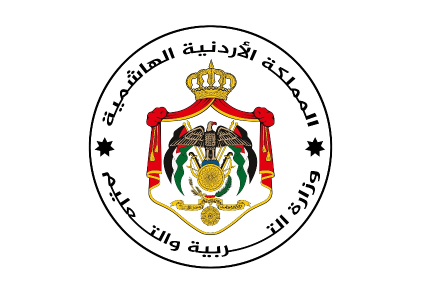The National Program at Al-Omariya Schools
The National Program at Al-Omareyah Schools is an educational system implemented in accordance with the vision, objectives, and goals of the Ministry of Education in the Hashemite Kingdom of Jordan. The program aims to provide distinguished and diversified education that meets students’ individual needs while keeping pace with modern educational developments.

Educational Stages in the National Program
The National Program covers all educational stages from early childhood through secondary education, in line with the framework of the Ministry of Education in Jordan. It is structured as follows:
Early Childhood Stage (Lower Pre-Elementary):
Includes nursery, Kindergarten 1 (KG1), and Kindergarten 2 (KG2).
Lower Elementary Stage:
Begins from Grade 1 and continues through Grade 4, according to the national education system. Classes are co-educational up to Grade 3, with separation beginning in Grade 4.
Middle Elementary Stage:
Covers Grades 5 to 7 and is non-co-educational.
Upper Elementary Stage:
Includes Grades 8 to 10 and is non-co-educational.
Secondary Stage:
Includes Grades 11 and 12 and is non-co-educational.
1. Focus on National, Cultural, and Religious Identity
The program upholds national and cultural values by strengthening students’ sense of belonging to their homeland and nation. It emphasizes the principles of moderate and authentic Islamic teachings, instilling their values and principles in students.
In addition, the program supports the Arabic language through various programs and platforms, such as the “Kalemon” platform, to enhance reading skills and correct pronunciation.
2. Integration of Technology in Education
The program incorporates modern technological tools, including smart screens, e-learning platforms, and artificial intelligence applications, to enhance interaction and improve the learning process.
3. Emphasis on Life Skills
The program places strong emphasis on thinking skills and related strategies to develop 21st-century competencies, such as critical and creative thinking, problem-solving, and decision-making.

أسلوب التدريس



Assessment and Certificates
Assessment is based on mid-term exams and the final national exam (Tawjihi).
Students receive the Jordanian General Secondary Education Certificate, accredited by the Ministry of Education.
The certificate is officially recognized by Jordanian universities and most Arab universities.
It allows students to choose the university major that suits their academic track (Scientific, Literary, or Vocational).



